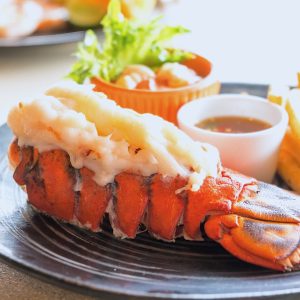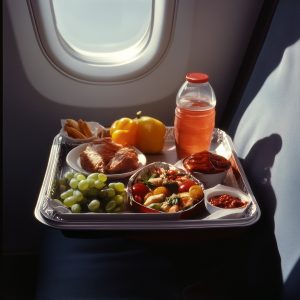Using Your Hospitality Management Degree to Work at a Theme Park
Working in hospitality management at a theme park is exciting and rewarding. This career blends guest service, operations, and entertainment. Theme parks buzz with activity, drawing visitors from around the world. Families and friends come to create unforgettable memories. As a hospitality manager, you ensure every guest has a seamless and enjoyable visit. You oversee dining, accommodations, and special events.
Every day brings something new. You lead a diverse team, handle logistics, and solve problems on the spot. Your role balances guest satisfaction with operational efficiency. Strong leadership and adaptability are crucial. Whether managing a restaurant, running a hotel, or coordinating events, your efforts directly impact the park’s success.
Creativity and fun are key in this role. You help create magical experiences that guests treasure. Turning an ordinary day into an extraordinary adventure is all part of the job. This career keeps you on your toes and rewards you with opportunities to grow and excel.
As a theme park manager, you oversee daily operations and long-term goals. Your mission is to keep the park running smoothly while delivering safe and memorable experiences. This role demands focus, energy, and a passion for making every guest’s visit unforgettable.
Key Aspects of a Theme Park Manager’s Role:
- Leadership and Team Management
A theme park manager leads a diverse team. This team includes ride operators, food and beverage staff, customer service representatives, maintenance workers, and event coordinators. They handle hiring, training, scheduling, and supervising staff. Their goal is simple: ensure everyone works together to create a positive guest experience. - Operational Oversight
Managing the park’s logistics is a key responsibility. Managers ensure rides operate safely, maintain cleanliness, and oversee general upkeep. They ensure every attraction and service runs smoothly.Guest - Experience
Guest satisfaction comes first. Managers ensure the park meets high standards in attractions and customer service. They address feedback quickly and resolve issues to keep guests happy. - Financial Management
Theme park managers handle finances carefully. They manage budgets, monitor revenue, and control costs. They focus on profitability without sacrificing quality. - Safety and Compliance
Safety is non-negotiable. Managers ensure the park follows all regulations and industry standards. They oversee emergency protocols and conduct regular safety audits. - A theme park manager drives the park’s success. They balance the needs of guests, staff, and the business while ensuring everything runs seamlessly.
What Are the Responsibilities?
The responsibilities of a theme park manager are diverse and require a balance of operational oversight, guest service, and leadership skills. Here are vital responsibilities typically associated with this role:
- Guest Experience Management: Ensuring a high level of guest satisfaction by overseeing all aspects of guest service, including addressing complaints, resolving issues, and enhancing the overall park experience.
- Operational Oversight: Managing day-to-day operations, including ride safety, crowd control, cleanliness, and overall park maintenance to ensure the park runs smoothly and efficiently.
- Staff Management: Hiring, training, and supervising a large and diverse team, from ride operators and food service staff to maintenance crews and customer service representatives.
- Safety and Compliance: Ensuring all park operations comply with safety regulations, health codes, and industry standards. This includes conducting safety inspections, managing emergency response procedures, and adequately training staff.
- Financial Management: Overseeing budgets, controlling costs, and maximizing revenue through ticket sales, food and beverage services, retail, and special events.
- Event Coordination: Planning and managing special events, seasonal activities, and promotional campaigns to attract more visitors and enhance the guest experience.
- Marketing and Public Relations: Collaborating with the marketing team to promote the park, attract visitors, and maintain a positive public image.
- Long-Term Planning: Developing strategies for park growth, improvements, and future attractions to keep the park competitive and appealing to visitors year after year.
Who Manages All the Food Concessions At A Theme Park?
A food and beverage (F&B) manager typically manages the food concessions at a theme park. This role oversees all food-related operations within the park, ensuring that food stands, restaurants, and beverage stations run smoothly and efficiently.
Key Responsibilities of a Food and Beverage Manager at a Theme Park:
- Menu Planning and Development: Creating diverse and appealing menus that cater to various guest preferences, including dietary restrictions and seasonal offerings.
- Vendor and Supplier Management: Coordinating with food suppliers and vendors to ensure a steady supply of quality ingredients and products.
- Staff Management: Hiring, training, and supervising the food service staff, from chefs and cooks to servers and cashiers, ensuring they adhere to quality and safety standards.
- Operational Oversight: Managing the daily operations of all food outlets, including inventory control, kitchen efficiency, and service speed.
- Quality Control: Ensuring that all food and beverages meet health and safety standards, including regular inspections and compliance with food safety regulations.
- Financial Management: Overseeing budgets, cost control, pricing strategies, and profit margins, ensuring the profitability of the food and beverage department.
- Guest Experience: Enhancing the overall guest experience by ensuring that food service is fast, friendly, and meets expectations in terms of quality and value.
In larger theme parks, the F&B Manager may work closely with other departments, including marketing, to develop themed promotions, special events, and seasonal menus to attract and engage guests.













One Response
It’s interesting to know that theme park jobs are not just about handling rides and serving food. As you said, there is more to that than those kinds of jobs. I can imagine how workers in a theme park must also be well-trained on safety especially when they are handling rollercoasters or other thrilling rides. So the theme parks that we must visit must ensure that the people are safe with their staff.